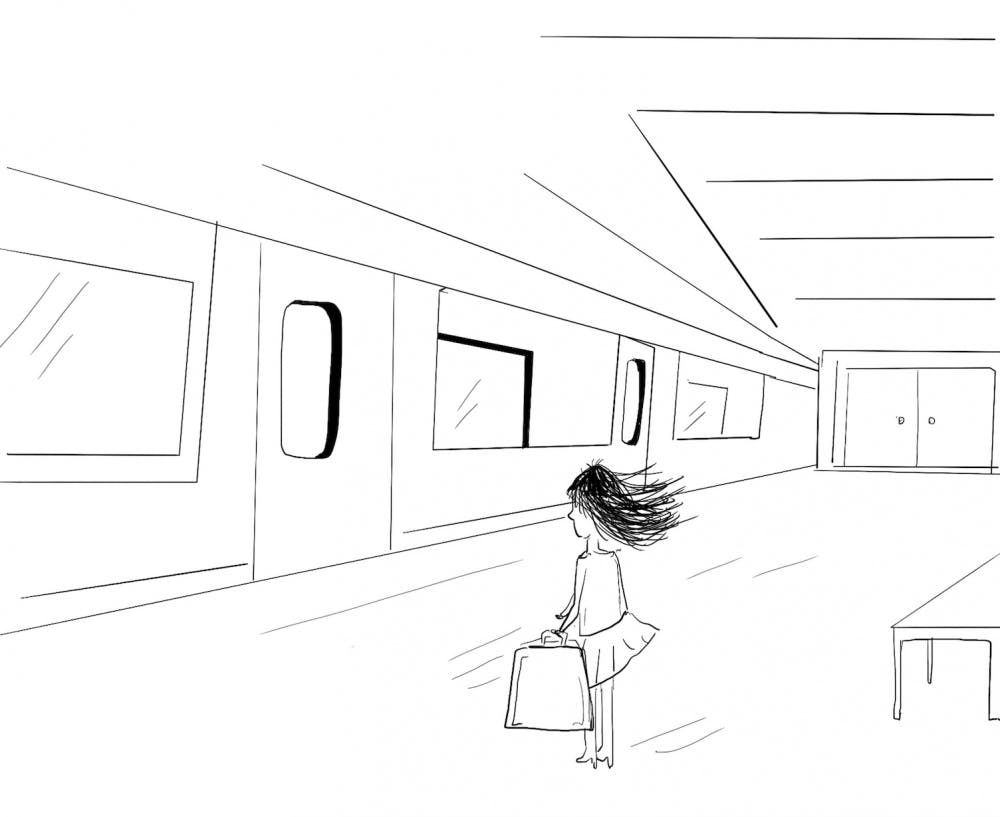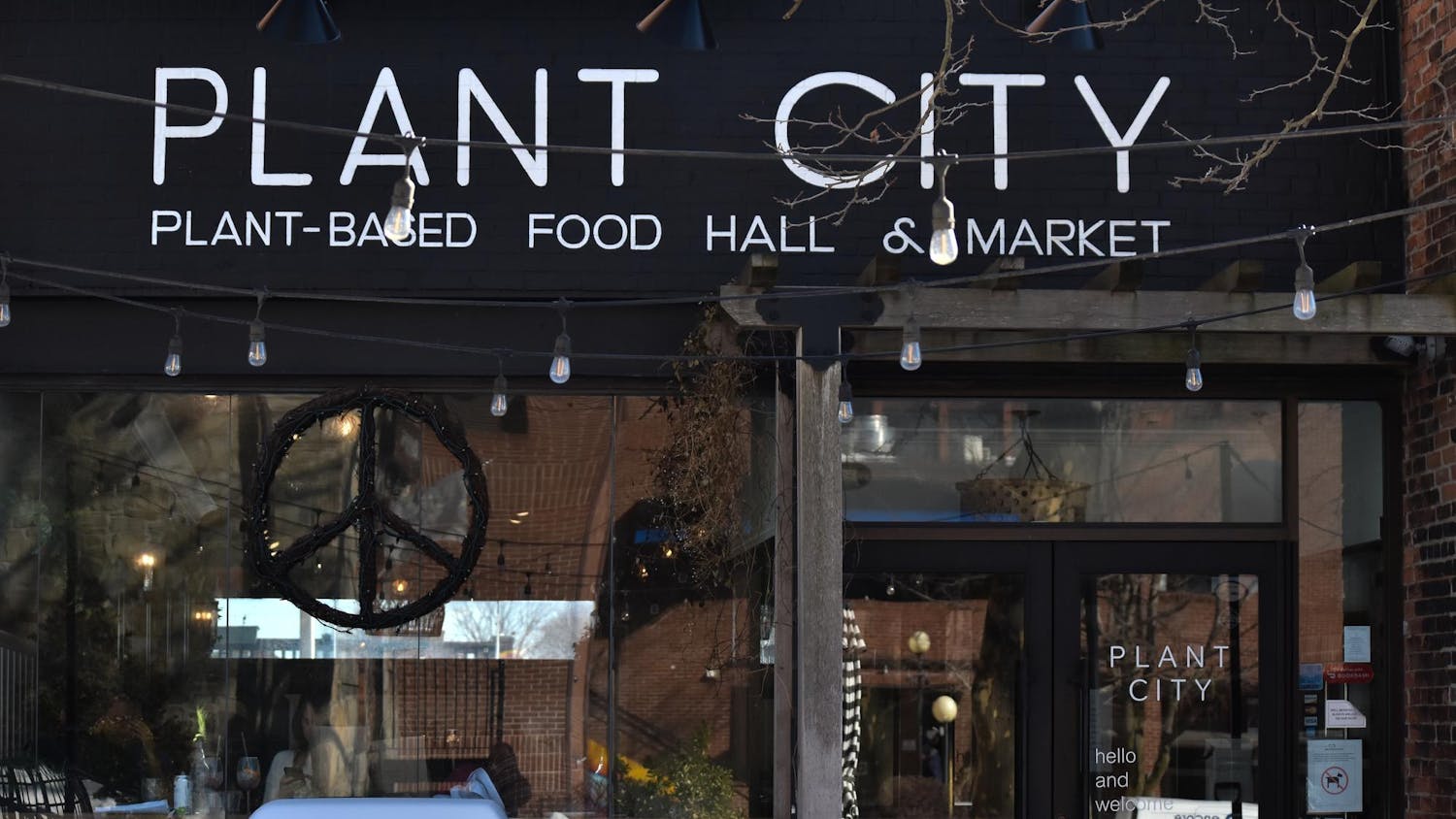In the commute between Boston and Providence, missing a train does not always mean a brief 20 minute delay — sometimes, this misstep can set travelers back by two hours. For Joslyn Mills, a postdoctoral researcher at the University who used to spend 20 hours a week traveling between the two cities, the Massachusetts Bay Transportation Authority’s infrequent service, slow trains and common delays were daily frustrations.
But the commute may improve due to a vote by the MBTA’s Fiscal and Management Control Board on Nov. 4. The Control Board voted to back substantial investment in the commuter rail system, committing to replace diesel locomotives with electric trains and increase service frequency and speed.
To go into effect, this resolution requires extensive state funding, including an initial $1.5 billion to start the first phase of the transformation, according to the Providence Journal.
The Providence/Stoughton Line, which provides service to Boston, “is already electrified and therefore it presents a great opportunity to pilot a new high-speed rail service,” wrote Josh Block, press secretary for Gov. Gina Raimondo, in an email to The Herald. Raimondo has been working with Governor of Massachusetts Charlie Baker to create faster public transportation between the two cities, Block added.
In addition to the conversion from diesel to electric trains, each train car would be independently powered, allowing for faster acceleration. The MBTA would also raise the level of boarding platforms in the eight stations between Providence and Boston, eliminating the need for unfolding stairs from compartments and allowing for faster connection times. “The trip time could be reduced from what is currently about an hour and 10 minutes to 46 minutes,” said John Flaherty, deputy director for Grow Smart RI.
The proposal would also increase the frequency of trains to every half hour or twenty minutes, Flaherty added. “What they’re looking to do is to potentially have the commuter rail system operate more like a subway.”
In the MBTA system, Providence is the second busiest stop outside of Boston, Flaherty said. Flaherty added that there is a demand for fast, non-automotive transport between the two cities. Boston has “the worst congestion anywhere in the country,” and the MBTA’s proposal would incentivize train use and cut down on the need for car travel, he said. Grow Smart RI, an organization that promotes sustainable development in the public and private sectors, was “thrilled” with the outcome of the vote, Flaherty added.
Students like Chiaka Ibe ’21 and Katie Friis ’21 are excited by these proposed changes.
During job recruiting season last year, Ibe was traveling to and from Boston once or twice a week and often took the commuter rail. Ibe said that a faster trip and more frequent service would have been much more convenient for her, especially when making it to early morning interviews. “If I had more time to sleep before I had to go to Boston, that would be incredible,” she said.
For Friis, a Boston native, a shorter train ride would make it easier to visit family and friends. “It would probably make me more incentivized to go to Boston for a shorter amount of time,” she said.
In addition to faster travel time, switching to electric trains includes extensive environmental benefits. Though the scope of carbon emission reductions still depends on the source of electricity, Senior Lecturer in Environment and Society Kurt Teichert said that Rhode Island’s current power grid runs on natural gas, which is cleaner than diesel.
Teichert avoids using the commuter rail because of the MBTA’s current diesel locomotives, which contribute to poor air quality in stations like Back Bay. “As much as possible, if I know I have something going on in Boston, I will look at the schedule and book an Amtrak,” he said.
“There’s a number of local source emissions that go away when you electrify the trains, and that’s the primary health and environmental benefit,” Teichert said. He added that the “particulate matter is particularly problematic for people that live along those lines” and is associated with higher rates of asthma in those communities.
“The transportation sector in the Northeast is both the single largest and the fastest-growing contributor to greenhouse gas emissions,” Flaherty added. “If we don’t do something somewhat radical on the transportation front, we’re never going to make a whole lot of progress on reducing emissions.”
The vote still leaves the question of funding for MBTA’s full system transformation — which is estimated to cost approximately $29 billion — unanswered. But public interest in the change is significant, Flaherty added. “There’s a great deal of support for raising the money necessary to really overhaul the transit system,” he said.
Block added that conversations between Raimondo and Baker will continue regarding the proposal. “Our two teams are continuing to discuss logistical hurdles — such as financing, acquiring the locomotives, working with Amtrak on scheduling, etc. — in order to advance the proposal,” he wrote.





